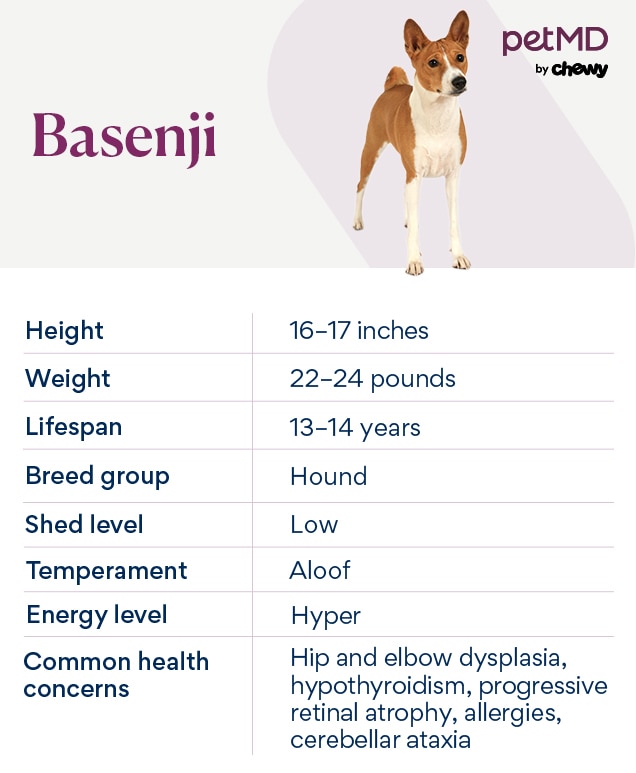Adopting a Basenji can be a rewarding experience for those who appreciate their unique qualities and are prepared for the responsibilities that come with owning this distinct breed. Known for their “barkless” nature, Basenjis communicate in ways that might surprise you. However, before you rush into adoption, it’s crucial to understand what you’re getting into. In this article, we’ll explore the ins and outs of adopting a Basenji, from their charming traits to potential challenges, ensuring you are well-prepared for this exciting journey.
Key Takeaways
- Basenjis are known for their unique yodel-like vocalization instead of barking.
- They require plenty of physical and mental stimulation due to their high energy levels.
- Adopting a Basenji from a rescue can be more cost-effective than buying from a breeder.
- Despite being “barkless,” Basenjis still communicate vocally in other ways.
- They are affectionate and enjoy cuddling with their human companions.
An Introduction to the Basenji Breed
The Basenji is a small, athletic dog originally bred in Africa for hunting. Their sleek, muscular build and high energy levels make them excellent companions for active individuals or families. Basenjis are often referred to as “barkless dogs” due to their unique vocalization that resembles a yodel rather than a traditional bark. This trait, along with their independence and intelligence, makes them a fascinating breed.
Basenjis are known for their alert and curious nature. They have a distinct appearance, characterized by a tightly curled tail, wrinkled forehead, and erect ears. Their coat is short and fine, coming in a variety of colors including red, black, brindle, and tricolor. These dogs are also known for their cat-like grooming habits, often licking themselves clean and keeping their coat tidy.

“Basenji Dog Breed Health and Care | PetMD” from www.petmd.com and used with no modifications.
Unique Traits and Characteristics
One of the most striking traits of the Basenji is their “barkless” nature. Instead of barking, they produce a unique sound known as a “barroo,” which is a mix of yodeling and howling. This makes them an attractive option for those seeking a quieter dog breed. However, it’s essential to remember that while they may not bark, Basenjis can be quite vocal in other ways.
Basenjis are also highly intelligent and independent. They have a strong prey drive and can be quite mischievous if not given enough mental and physical stimulation. This means they require consistent training and socialization from an early age to ensure they develop into well-mannered companions.
Brief History and Origin
The Basenji is believed to be one of the oldest dog breeds, with roots tracing back to ancient Egypt. They were initially bred by African tribes for hunting small game, using their keen senses and agility to track and capture prey. Over time, their unique traits and adaptability made them popular among dog enthusiasts worldwide.
- Originated in Central Africa
- Used as hunting dogs by African tribes
- Recognized as one of the oldest dog breeds
- Introduced to the Western world in the early 20th century
Today, Basenjis are cherished for their unique characteristics and make excellent pets for those who appreciate their independent spirit and lively nature.
Understanding the Basenji’s Minimal Barking
While Basenjis are often described as “barkless,” it’s essential to understand that this doesn’t mean they are silent. Instead, they communicate in different ways that can be equally expressive.
The Basenji Yodel: A Quieter Canine
The Basenji’s yodel-like vocalization, known as a “barroo,” is a delightful and distinctive sound that sets them apart from other breeds. This unique sound is produced due to the shape of their larynx, which differs from that of typical barking dogs. The “barroo” can be quite musical and is often used to express excitement or alertness. To learn more about this fascinating breed, visit DogTime’s Basenji page.
How Silence Affects Communication
Because Basenjis don’t bark like other dogs, they rely on other forms of communication, such as body language and vocalizations like growls, whines, and yodels. Understanding these signals is crucial for effective communication with your Basenji. Paying attention to their cues can help you better understand their needs and emotions.
Besides that, it’s important to socialize your Basenji from an early age to ensure they are comfortable with various sounds and situations. This will help them develop into well-adjusted companions who can communicate effectively with their human family members.
Adopting a Basenji: What to Consider
Adopting a Basenji can be a rewarding experience, but it’s essential to be aware of the breed’s specific needs and characteristics. Before bringing a Basenji into your home, consider the following factors to ensure a successful adoption. For more information on the breed, you can visit this Basenji breed guide.
First and foremost, Basenjis require a significant amount of physical and mental stimulation. Their high energy levels mean they need plenty of exercise and playtime to prevent boredom and destructive behavior. Daily walks, interactive toys, and activities like agility training can help keep them engaged and happy.
Additionally, Basenjis have a strong prey drive, which means they may not be suitable for homes with small pets. It’s essential to provide a secure, fenced area for them to play in, as they are known for their ability to escape and explore their surroundings. For those considering adopting a Basenji, it’s important to be aware of pet adoption myths to ensure a successful integration into your home.
Potential Downsides and Challenges
While Basenjis have many charming qualities, potential adopters should be aware of some challenges. One significant downside is their independent nature. This trait, while endearing, can also make training more difficult. Basenjis are known to have a mind of their own, often requiring a patient and consistent approach to training. Without proper guidance, they may become stubborn and resistant to commands.
Another challenge is their strong prey drive. Basenjis were originally bred for hunting, which means they have an instinct to chase after smaller animals. This can be problematic if you have other small pets at home or if you live in an area with a lot of wildlife. It’s crucial to keep them on a leash during walks and ensure your yard is securely fenced to prevent any adventurous escapes. For more information on their behavior, you can visit this Basenji breed guide.
Lastly, Basenjis can be prone to separation anxiety if left alone for extended periods. They form strong bonds with their human companions and may become destructive if they feel abandoned. Therefore, they thrive in homes where someone is often present or where they can have plenty of companionship. If you’re considering adding a Basenji to your family, it’s important to prepare your home adequately, and this rescue pet home preparation guide can be a valuable resource.
Financial Costs of Basenji Ownership
Owning a Basenji involves certain financial commitments. Adoption fees from a rescue organization can range from $100 to $300, which is generally more affordable than purchasing from a breeder, where costs can soar upwards of $1,000. Beyond the initial adoption fee, you’ll need to budget for food, grooming, veterinary care, and other necessities.
Basenjis, like all dogs, require regular veterinary check-ups and vaccinations, which can cost between $200 to $500 annually. Additionally, you should consider the cost of pet insurance, which can help cover unexpected medical expenses. Monthly food costs for a Basenji typically range from $30 to $60, depending on the quality of food you choose.
Exercise and Activity Requirements
Basenjis are energetic dogs that need plenty of exercise to keep them healthy and happy. A minimum of one hour of physical activity per day is recommended, but more active Basenjis may require additional exercise. This can include walks, playtime in a secure yard, or engaging in dog sports like agility.
Besides physical exercise, Basenjis also need mental stimulation to prevent boredom. Interactive toys, puzzle feeders, and training sessions can help keep their minds sharp. Regularly changing their toys and activities can prevent them from becoming bored and resorting to destructive behaviors.
The Positive Traits of Basenjis
Despite some challenges, Basenjis have many positive traits that make them wonderful companions. Their affectionate nature is one of their most endearing qualities. Basenjis form strong bonds with their families and enjoy spending time with their human companions. They are known for being quite cuddly, often curling up next to their favorite people. Learn about the physical and mental health benefits of adopting a pet.
Another advantage of Basenjis is their grooming habits. They have a short, fine coat that requires minimal grooming, making them relatively low-maintenance in terms of grooming. Their cat-like grooming behavior means they often keep themselves clean, which can be a relief for owners who prefer a tidier pet.
“Basenjis are known for their cleanliness and minimal shedding, which makes them a great choice for those who prefer a tidier home environment.”
Affectionate and Cuddly Nature
Basenjis are known for their affectionate nature, often forming strong bonds with their families. They enjoy being around their human companions and are known for their love of cuddling. This makes them excellent pets for those who appreciate a close bond with their dog.
It’s important to note that while Basenjis are affectionate, they also value their independence. They may not always seek constant attention but will often choose moments to snuggle up and show their love. This balance of affection and independence is one of the many reasons people are drawn to this breed.
Intelligent and Independent
Basenjis are highly intelligent dogs, which can be both a blessing and a challenge. Their intelligence means they can learn new commands and tricks quickly, but it also means they can become bored if not mentally stimulated. It’s important to keep them engaged with various activities and training exercises to satisfy their curious minds.
Their independent nature is another defining characteristic. While they are affectionate, Basenjis are also known for their self-reliance. This trait can make them more challenging to train, as they may not always be eager to please. However, with patience and consistency, they can become well-behaved companions.
- Provide consistent training and socialization from an early age.
- Engage in regular play and exercise to keep them stimulated.
- Ensure they have a secure environment to prevent escapes.
Overall, Basenjis are unique dogs that offer a blend of affection and independence, making them excellent companions for those who appreciate their distinct personality.
Finding and Adopting a Rescue Basenji
If you’re considering adopting a Basenji, it’s essential to know where to look and what to expect during the adoption process. Many Basenjis end up in rescue organizations due to their unique traits, which can be misunderstood by inexperienced owners. Adopting from a rescue not only gives a dog a second chance but also provides you with a companion that has often been assessed for temperament and health.
When adopting a rescue Basenji, be prepared for an adjustment period as they settle into their new home. Patience and understanding are key during this time, as they may need time to adapt to their new environment and routine. Providing a stable, loving home will help them thrive and become a cherished member of your family. For more insights, explore the rescue pet adoption journey from shelter to sofa.
Locating Reputable Basenji Rescues
Finding a reputable rescue organization is crucial when adopting a Basenji. Start by searching online for Basenji-specific rescues or contacting local animal shelters to inquire about available dogs. It’s essential to do your research and ensure the organization is reputable, as this can make a significant difference in the adoption experience.
Many rescues have websites or social media pages where they post available Basenjis and provide information about the adoption process. Don’t hesitate to reach out to them with any questions or concerns you may have. A reputable rescue will be more than happy to assist you and ensure you find the perfect Basenji for your home.
What to Expect During the Adoption Process
Adopting a Basenji involves several steps to ensure a good match between the dog and your family. Initially, you’ll need to fill out an adoption application, which helps the rescue organization understand your lifestyle and preferences. This information is crucial for matching you with a Basenji whose temperament and needs align with your home environment. For more insights, check out this pet adoption journey guide.
Once your application is reviewed, the rescue may conduct a home visit to ensure your living space is safe and suitable for a Basenji. This step is essential to identify any potential hazards and offer suggestions for creating a dog-friendly environment. After the home visit, you might meet several Basenjis to find the right fit for your family.
If all goes well, you’ll finalize the adoption by signing an agreement and paying the adoption fee. The fee typically covers vaccinations, spaying or neutering, and any necessary medical treatments. After the paperwork is complete, you’ll be ready to welcome your new Basenji into your home.
Preparing Your Home for a Basenji
Preparing your home for a Basenji involves creating a safe, comfortable space for your new companion. Start by securing your yard with a sturdy fence to prevent any adventurous escapes. Basenjis are known for their agility and can easily jump over or dig under inadequate fencing.
Inside your home, designate a specific area for your Basenji’s bed, food, and water dishes. This will help them feel secure and establish a routine. Remove any hazardous items or small objects that could be swallowed, and ensure that electrical cords are out of reach. For more detailed guidance, check out our rescue pet home preparation guide. Providing a variety of toys and chew items will help keep your Basenji entertained and prevent boredom.
Consider enrolling your Basenji in obedience classes to help them adjust to their new environment and learn essential commands. Training sessions also provide an excellent opportunity for bonding and socialization, which are crucial for a well-adjusted pet.
Final Thoughts on Basenji Adoption and Ownership
Adopting a Basenji can be a rewarding experience for those who appreciate their unique characteristics and are willing to invest time and effort into their care. While they may present some challenges, such as their independent nature and high energy levels, Basenjis offer loyalty, affection, and companionship to those who understand and embrace their distinct personality. For more insights, consider exploring the physical and mental health benefits of adopting a pet.
By providing a loving home and meeting their physical and mental needs, you’ll have a devoted and engaging companion. Remember, adopting a Basenji not only changes your life for the better but also gives a deserving dog a second chance at happiness.
Frequently Asked Questions
Adopting a Basenji often comes with questions about their behavior, care, and compatibility with your lifestyle. Here are some common queries potential adopters may have:
Are Basenjis good with children and other pets?
Basenjis can be good with children, especially if they are raised together. Their playful and energetic nature makes them great companions for active kids. However, due to their strong prey drive, Basenjis may not be the best choice for homes with small pets like rabbits or hamsters. Early socialization and supervision are key to fostering positive interactions.
What should I feed my adopted Basenji?
Providing a balanced diet is essential for your Basenji’s health. Choose a high-quality dog food that meets their nutritional needs, taking into account their age, weight, and activity level. Basenjis are known for being clean eaters, so it’s important to maintain a consistent feeding schedule and monitor their weight to prevent obesity. For additional guidance, you can refer to this home preparation guide for newly adopted pets.
Some Basenjis may have food sensitivities, so be attentive to any signs of allergies or digestive issues. Consult your veterinarian for specific dietary recommendations and adjustments as needed.
How much exercise do Basenjis need daily?
Basenjis are high-energy dogs that require regular exercise to stay healthy and happy. Aim for at least one hour of physical activity each day, which can include walks, playtime, or engaging in dog sports like agility.
- Take your Basenji for a brisk walk or jog.
- Engage in interactive play with toys or fetch.
- Provide mental stimulation with puzzle toys or training exercises.
Besides physical activity, mental stimulation is equally important for Basenjis. Keeping their minds engaged helps prevent boredom and destructive behavior.
Incorporate variety into their exercise routine to keep them interested and challenged. This will not only benefit their physical health but also strengthen your bond with your Basenji. For more insights on preparing your home for a new pet, check out our pet home preparation guide.
What are common health concerns for the Basenji breed?
While Basenjis are generally healthy dogs, they can be prone to certain genetic health issues. It’s important to be aware of these potential concerns to ensure your Basenji receives the best care possible.
Some common health concerns include the physical and mental health benefits of adopting a pet.
- Fanconi Syndrome: A kidney disorder that affects the ability to reabsorb nutrients.
- Progressive Retinal Atrophy (PRA): A degenerative eye disease that can lead to blindness.
- Hip Dysplasia: A genetic condition affecting the hip joint, leading to arthritis and mobility issues.
Regular veterinary check-ups and health screenings can help detect and manage these conditions early. Additionally, maintaining a healthy diet and exercise routine can contribute to your Basenji’s overall well-being.


